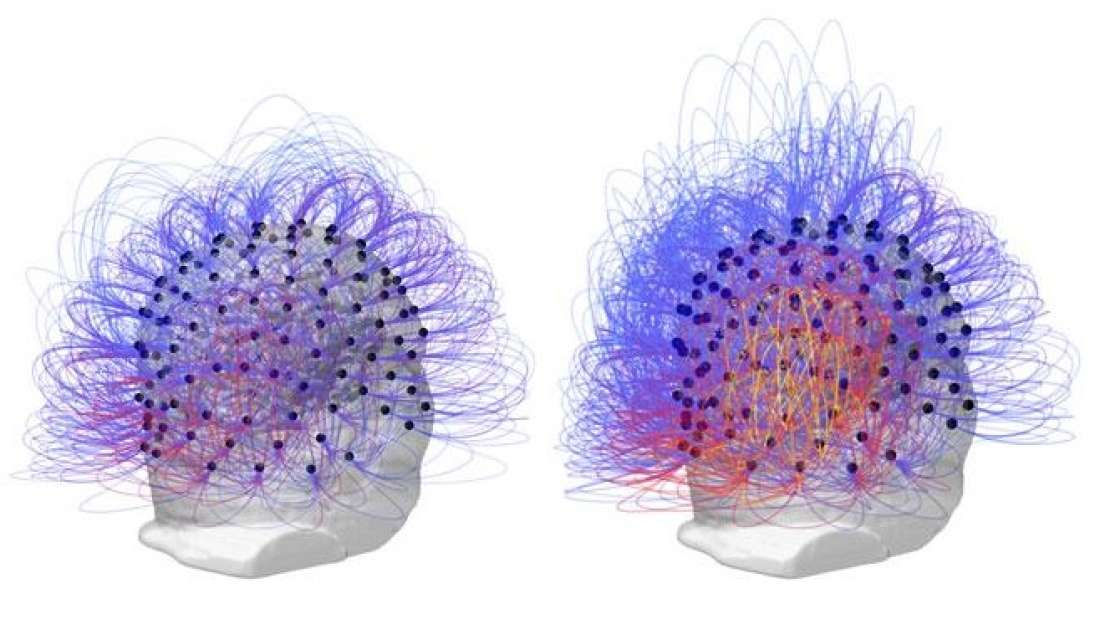Consciousness
Researchers Restore Consciousness In Man Who Spent 15 Years In Vegetative State

For the first time in 15 years, a man who lived in a vegetative state is showing signs of consciousness. He is far from complete wakefulness, but the development is being lauded in the scientific community, as it is the first time researchers have achieved such a feat.
Scientists at the French National Center for Scientific Research simulated the vagus nerve in an attempt to study whether or not this action would result in restored consciousness. This nerve connects the brain to the gut, in addition to other body parts. As New Atlas reports, stimulation of the vagus nerve has been proven to sometimes benefit people with depression or epilepsy. The nerve also plays a role in the process of waking up from sleep and staying alert.

Credit: Urbo
Corresponding author, Dr. Angela Sirigu, was particularly interested in whether or not stimulating this nerve could restore consciousness in patients with unresponsiveness wakefulness syndrome. Aware that the longer a person in a vegetative state, the less likely they are to recover, she sought a patient who had gone the longest without improvement. The chosen individual has been in a vegetative state for 15 years, after having a car accident at the age of 20.
For weeks, the team stimulated the vagus nerve with no response. Then approximately one month after the trial began, the man turned his head on request. The study, published in Current Biology, says that his eyes followed a moving object, and he appeared to stay conscious longer when being read to. When someone else’s head neared his face, he spontaneously opened his eyes wider.
Electroencephalogram (EEGs) also showed increased brain activity. And, metabolic activity was found to have increased in the sub-cortex and cortex. The authors noted that this is an indication more “fuel” is needed among brain cells. As a result of this development, the patient’s status has been upgraded from unresponsive to “minimal consciousness.” Sirigu said in a statement: “Brain plasticity and brain repair are still possible even when hope seems to have vanished.”

A comparison of the patient’s brain “before” and “after” the vagus nerve stimulation. Credit: Corazze et al.
The vagus nerve affects the brain by inducing the release of the hormone norepinephrine, also known as noradrenaline. The hormone, which acts as a neurotransmitter, is responsible for keeping us awake and enhancing information sharing between brain regions. As a result of this latest finding, Sirigu and co-authors believe they may have discovered where “consciousness” lies within the brain. In the paper, entitled “Restoring consciousness with vagus nerve stimulation,” they wrote that the parental context is “a major player in guiding the expansion of neural activity across brain regions.”
This latest finding challenges the notion that after one year in a vegetative state, the chances of waking decrease substantially. The team wrote:
“These findings show that stimulation of the vagus nerve promoted the spread of cortical signals and caused an increase of metabolic activity leading to behavioral improvement as measured with the CRS-R scale and as reported by clinicians and family members. Thus, potentiating vagus nerve inputs to the brain helps to restore consciousness even after many years of being in a vegetative state, thus challenging the belief that disorders of consciousness persisting after 12 months are irreversible.”
The team is now planning a large collaborative study to “confirm and extend the therapeutic potential of VNS for patients in a vegetative or minimally conscious state,” reports Eureka Alert. According to Sirigu, findings from the additional research will advance scientists’ understanding of the “fascinating capacity of our mind to produce conscious experience.”
If there is a future for those in an unresponsiveness wakefulness syndrome, this could be the breakthrough of the decade.
h/t Eureka Alert
Typos, corrections and/or news tips? Email us at Contact@TheMindUnleashed.com
